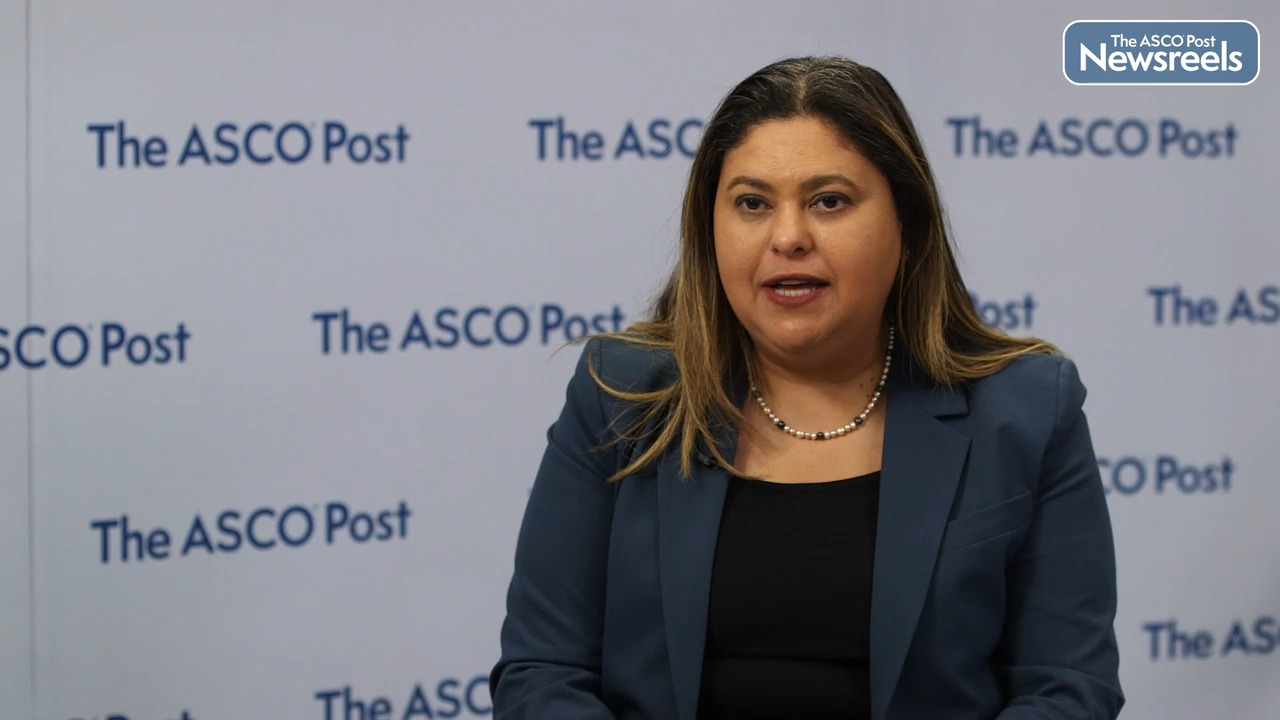Transcript
Disclaimer: This video transcript has not been proofread or edited and may contain errors.
Alberto Bossi, MD:
PEACE-1 is a randomized Phase III trial with four arms that has been designed some 11 years ago in order to study a very precise population of patients, which is patients presenting de novo of diagnosis with metastatic prostate cancer. There has been a huge landscape movement in the last years concerning this subgroup of patients and PEACE-1 has specifically been designed to answer two questions. First of all, the benefit of abiraterone on top of standard of care, and second, to detect if any benefit of local radiotherapy, prostate radiotherapy would be important for those patients, so two questions, four arms. Standard of care has been updated during the inclusion period of the study because we had some new evidence coming from the literature, and so the use of chemotherapy, docetaxel, has been at first introduced and compulsory at the end of the trial, four arms, so that have been compared and two main endpoints, radiographic progression-free survival and overall survival. Then a list of secondary endpoints, which we also discuss.
What we discovered, in terms of overall survival, no difference between the use of local radiotherapy in those patients, both in the low volume population so patients presenting with low volume metastatic disease as in the high volume population, patients presenting with high burden of metastatic disease, no impact of radiotherapy. But using radiotherapy translates in a better radiographic progression-free survival, which was the second co-primary endpoint. We then had a list of secondary endpoints and we made studies on three of them. First, castration resistant state, and we discovered that giving radiotherapy in the prostate on those patients delays the onset of the castration resistant state, and this in a significant way. And second, that also in terms of secondary events locally in the prostate, radiotherapy may delay the need of a secondary treatment for those patients. Altogether, I think that in terms of quality of life for our patients these are very important outcomes.
What's next? Well, first we have to dig into those data with much more details. There are still some open questions there. You are probably aware of the result of the STAMPEDE trial, the English trial which has exactly done the same as our trial and that has shown an improvement in overall survival, why our data do not show the same, so this is something we will try to dig later on. And secondary, there are a list of other endpoints which we also will try to study more details. The secondary endpoints are also important, especially in terms of quality of life for our patients. What is reassuring, and this is the end, what is reassuring is that no added toxicity was due to radiotherapy in the prostate and I think that this is very good and reassuring information for our patients and their family.





